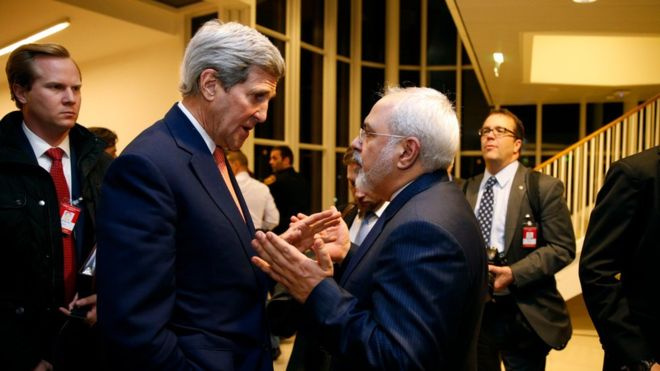Why Iran Should Get Rid of Its Historical Mistrust towards the West (and Other Countries)

Since the 1979 Islamic Revolution, mistrust towards foreign states, especially Western countries, has been a major characteristic and also a key challenge of Iran’s international diplomacy. Skepticism towards foreigners runs not only among the elite, but also the public.
In the anarchic system of the international community, each country naturally seeks to maximize its interests. Mistrust is the consequence of the inherent wish to expand one’s sphere of influence and is thus is a common feeling among all countries. But it is the degree of mistrust and the solutions to tackle the problem that vary among countries.
Iranians’ mistrust towards foreign countries is of course rooted in their bitter historical experiences: Iran has not attacked any of its neighbors in more than two decades, within the same period, but it has been manipulated and invaded many a times by foreign powers: two disastrous wars with Russia in the turn of the 19th century, which led to secession of vast territories from the Persian Empire, Europeans’ meddling in Iran’s internal affairs during the rule of Qajar dynasty, occupation of Iran during the Second World War despite its official announcement of neutrality, and the notorious coup against the democratic government of Mohammad Mosaddegh.
While blind trust towards foreign parties in negotiations and agreements may betray naiveté, but extreme mistrust in international relations may prove more detrimental towards national interests. In a world where trade relations are increasingly defining relations between countries, there is an urgent need to cast away futile skepticism. Lessons should be learnt from this historical events, obsession with the past should not. The tendency to compare every single action and event in the Iranian diplomacy with a bitter historical experience of the past is a serious flaw of the sociopolitical Iranian atmosphere which acts as a major obstacle towards development and progress for the future of the country. Using those historical experiences as a political tool to push out rivals is even worse.
In international relations, mistrust is a common feeling not only between enemies, but also between allies and friends. To curb the negative impact of mistrust, depending on the degree of feeling between the parties, agreements carry varying levels of checks and balances to ensure neither side suffers a loss. Establishment of international arbitration organizations also aims to tackle the challenge of mistrust and its consequences.
Today’s political actors tend to be forward looking, not stuck in history, and develop their long-term strategies according to their visions for the future. The Iranian obsession with our past and the penchant to place the entire blame on foreign actors without admitting domestic defects will make little help to advance foreign policy.
Russia has been a particular fixation of our policymakers in the recent years, views towards the country swinging between the anchor of Iran’s ‘pivot to East’ policy and a reincarnation of the Tsars Empire and an unreliable neighbor. But Russia is only one of the many state actors seeking its national interests. Viewing the country from a realist perspective, it can be beneficial to Iran’s interests. The EU, despite its many differences with Iran, is another powerful global actor bilateral ties with home can benefit Iran. The same applies to China, despite its upsetting trade imbalance with Iran - courtesy of Washington’s unfair sanctions. But the art of Iranian diplomacy is to create an atmosphere in which it can meet national interests through collaboration with these countries.
All of this calls for the academic elite to promote a discourse which reconciles the problem of historical mistrust with progress in international relations, in a way that is persuasive for the diplomats and the public. Domination of such a discoruse will help the formation of a realistic diplomacy, away from idealistic, maximalist approaches which can harm Iran’s national interests.
* This piece was originally published in Iranian Diplomacy Persian. Abbas Parvardeh is a Middle East affairs analyst.

